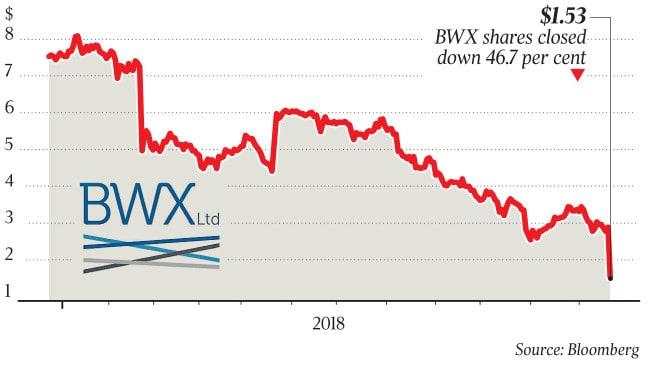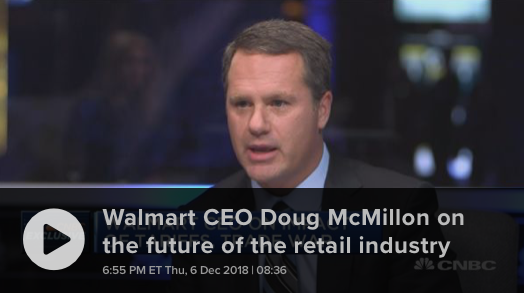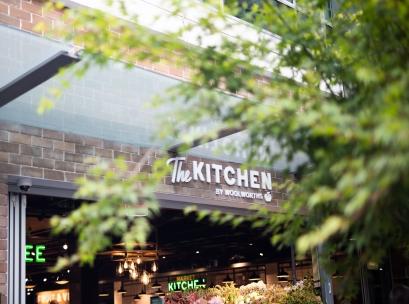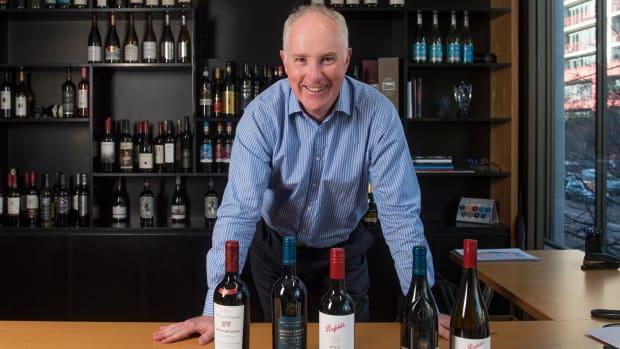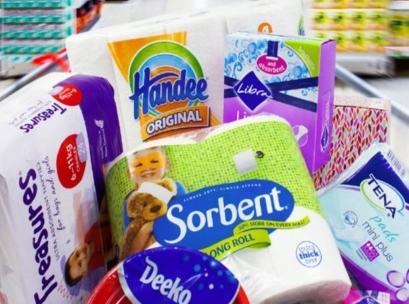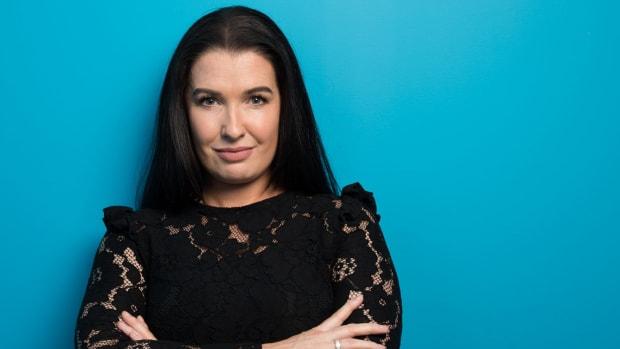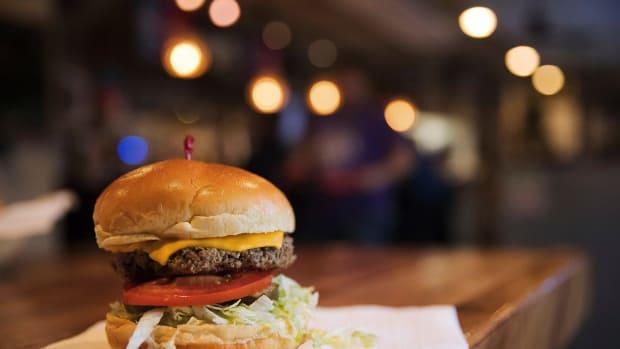
At the beginning of 2018 my local supermarket in south London had a couple of shelves of vegetarian and vegan food tucked away in the aisle with hummus, pizzas and quiches. Blink and you'd miss it. Then, over the past 12 months, something happened.
First a new section popped up near the cheese and cold meats aisle, offering vegan alternatives for your sandwich. Then some "cauliflower steaks" and "pulled jackfruit" turned up in the fresh veg corner. Over in the UHT milk section, almond drink and its non-dairy relatives colonised an entire zone. And suddenly there was half an aisle of vegan ready-meals. By the year's end, I was pushing my trolley past a full-blown vegan and vegetarian section, with every wish and whim catered for.
In Britain and Australia, the vegan trend has been gathering steam for about five years, particularly among the under-35s. The motivations are varied – health, animal rights, climate change – but the results are striking. Britain, long a trend-setter in meat-free eating, has a vegan fried-chicken outlet run by a former KFC employee; it has vegan delis, vegan festivals, vegan shoeshops, vegan beers in vegan pubs – and even a vegan episode of The Great British Bake-Off.
The Impossible Burger replicates the taste and texture of meat using plant proteins but the holy grail of vegan food is something that tastes as good as macaroni and cheese. AP
But with the supermarkets getting in on the act in 2018, veganism has now hit the British mainstream. It was the year veganism no longer meant annoying trips to a pricey health food store three suburbs away. And the year that being a vegan no longer meant being a social pariah, impossible to cook for; your dinner party host or long-suffering partner could now just grab a convincing and tasty ready-meal from the supermarket round the corner. In fact, the new route to social pariah-dom is to diss vegans: just ask the editor of the Waitrose Food magazine, who was forced out in October after his disparaging remarks on vegans went public.
British trends migrate to Australia pretty quickly. So if you've ever flirted with cutting down on meat, dairy and eggs, 2019 might well be your moment. And if you're in the food business, or want to be, this is a growth area to watch.
There were 600,000 vegans in Britain in 2018, up from 276,000 in 2016, according to an Ipsos Mori survey for the Vegan Society. That's quite some growth.
"If you add the vegetarians to the vegans, there's possibly 2 million to 3 million of those, and then you add the 21 per cent of people now saying they're 'flexitarians' – eating meat and fish less often – you're looking at one in three people who are eating no meat or significantly cutting down," says food writer and cook Lucas Hollweg. "This is not just a fad – it's a shift in where we're going with food, how we're thinking about it."
World has changed
Lauren Harris is a British public servant in her late 30s who became vegan three years ago. She was already vegetarian, and was annoyed that the canteen at her workplace had only one vegie option – a boring old cheese sandwich. When she complained, the chef casually remarked that since Harris was eating cheese she was hardly in a position to be holier-than-thou about animal suffering.
Stung, Harris decided to give veganism a go. She kept a food diary at the start, to make sure she got the required amounts of key nutrients.
Vegan milk alternatives. From left hazelnuts, almonds, oats and coconut. Supplied
"I lost weight, my hair got shinier. I felt so much better," she tells me over a meal at a vegan café in west London. The biggest challenge was her family: they were at a loss to how to cater for her, and she even skipped family Christmas the first year to save her mum the trouble.
But now the world has changed around her. "You used to have to do everything yourself. I used to say to people that it's easy to be vegan if you like to cook. But that's not true any more – if you want something like a vegan pizza, you can get it in the supermarket."
She recently had a baby and plans to bring him up vegan, although she admits this will take even more research and effort than going vegan herself.
Experts generally accept that a vegan diet can be adequate, even for children. But although worries about calcium and protein are overblown, you do have to spend more time thinking about how to get vitamin B12 and omega-3 fatty acids in particular.
Vegan leather products, like this bag from The Edge, are also increasingly popular. Anthony Weate
You also need to be wary of assuming that just because something is vegan, it'll be healthy. Lots of those new ready-meals on the supermarket shelves are pretty heavy in salt and fats, and should be approached with the same care as their meat equivalents.
And you need to get used to the idea that things won't taste exactly the same as the meat equivalents you are used to.
"You can't just add a bit of goat's curd to your salad. You need to find different ways to create flavour with vegan food. That's still the specialist thing," Hollweg says. Harris agrees: "Trying to get a mac-n-cheese to taste cheesy – that's the holy grail."
That's where the business angle comes in. With the supermarkets buying in, the vegan food industry is on the up. Not only is production increasing, but so is R&D.
Blockbuster technology
Niko Koffeman, co-founder of Dutch company The Vegetarian Butcher, wants to make products that are indistinguishable from the real thing. A few years ago he successfully fooled El Bulli chef Ferran Adrià into thinking he was eating genuine chicken, and he has a best-selling sausage roll that carnivores in a blind tasting rated more highly than the meat version.
He says turnover is growing 50 per cent a year. A lot of the growth is in ready-meals and snack food, where the vegan market has previously been starved of product. The economies of scale he hopes to achieve will eventually mean his prices could undercut the real thing. He foreshadows imminent expansion into Australia.
Kevin Brennan, British CEO of industry stalwart Quorn – found in the frozen food aisles of Australian supermarkets, says his company has stepped up its research into technology that can replace eggs as a binding agent (in case you're interested in what's under the bonnet, the big hope lies with isolates of mung bean, fava bean and chickpea).
"Everything we launch as vegan sells well," he says. "We launched a vegetarian fish finger that failed, but the vegan one was successful. The vegan label is almost replicating gluten-free as a badge of a clean and healthy product – it's like a form of shorthand."
Sales of vegetarian/vegan food are growing at 20 per cent in Britain, he says, the fastest growing food category of any scale. "Retailers are seeing that it has worked. A lot of categories are not growing, so I expect we'll see space open up and open up," he says.
But he warns that not all the new entrants racing into this space are likely to succeed – in his sector, the success rate for a new product can be as low as one in 100.
"The barriers to entry are low, but the barriers to making a good product are quite high," he says. "It's noisy rather than intensely competitive. There's not yet any blockbuster new technology or formats."
But scientists in western Europe and the US west coast are leading the charge to prove Brennan wrong. Intriguingly, some of the vanguard are getting funding from the corporate carnivores. The San Francisco company JUST, which produces a vegan egg substitute, has teamed up with Italian egg giant Eurovo. Tyson Foods, an American meat producer with a turnover of $US38 billion last year, has pumped money into vegan brand Beyond Meat.
All this seems to bode another bumper year for veganism, and for vegans. Harris is pleased that the trend is moving beyond "hipsters and hippies", but she warns it's not all plain sailing: many people, on discovering she's vegan, still expect her to be a "preachy pain in the arse". It might take more than a well-provisioned supermarket aisle to change that.


